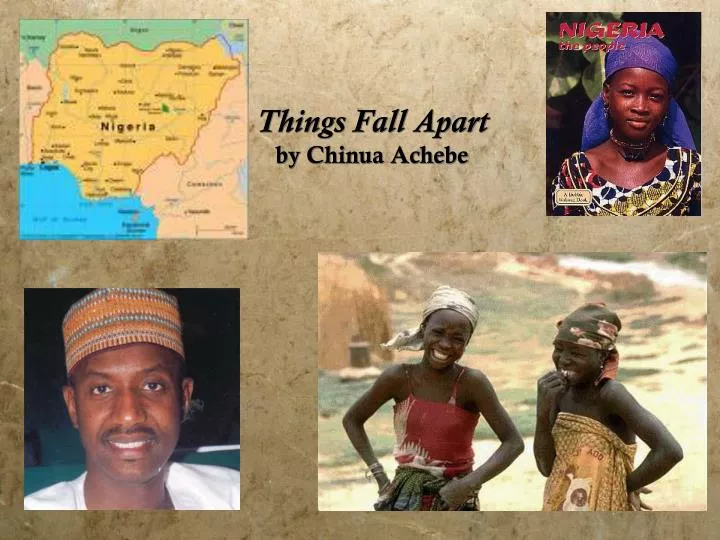

Things Fall Apart is set in the 1890s, during the coming of the white man to Nigeria. Published in 1958, Things Fall Apart is one of the masterpieces of 20th century African fiction.

Drawing on indigenous Nigerian oral traditions, this movement enriched European literary forms in hopes of creating a new literature, in English but unmistakably African.


In the 1950s, an exciting new literary movement grew in strength. His father taught at the missionary school, and Achebe witnessed firsthand the complex mix of benefit and catastrophe that the Christian religion had brought to the Igbo people. He had grown up in Ogidi, a large village in Nigeria. The study concludes by drawing attention to Achebe’s vision for emancipating women and nature from bearing the brunt of capitalist modernity.Chinua Achebe's college work sharpened his interest in indigenous Nigerian cultures. The study draws attention to Achebe’s master craftsmanship in exposing the complex network of forces that have over time sought to objectify women and nature, in service of selfish interests. By engaging Achebe’s all-time famous text, A Man of the People, through the Ecofeminist lens, the study serves to underscore the complex gendered drama that unfolds when women and nature are exploited by capitalist patriarchs. This study, therefore, examines A Man of the People through the Ecofeminist critical lens as this allows for a nuanced examination of the connectedness of the domination of women and natural resources in the novel. While A Man of the People has enjoyed wide-ranging critical examination, and unlike Things Fall Apart and Arrow of God which have been examined from ecocritical perspectives, not much has been done to underline Achebe’s ecofeminist underpinnings as depicted in the novel. Chinua Achebe’s A Man of the People recreates the exploitation of both nature and woman. Nature and women have through all ages been victims of exploitation, oppression and subjugation.


 0 kommentar(er)
0 kommentar(er)
